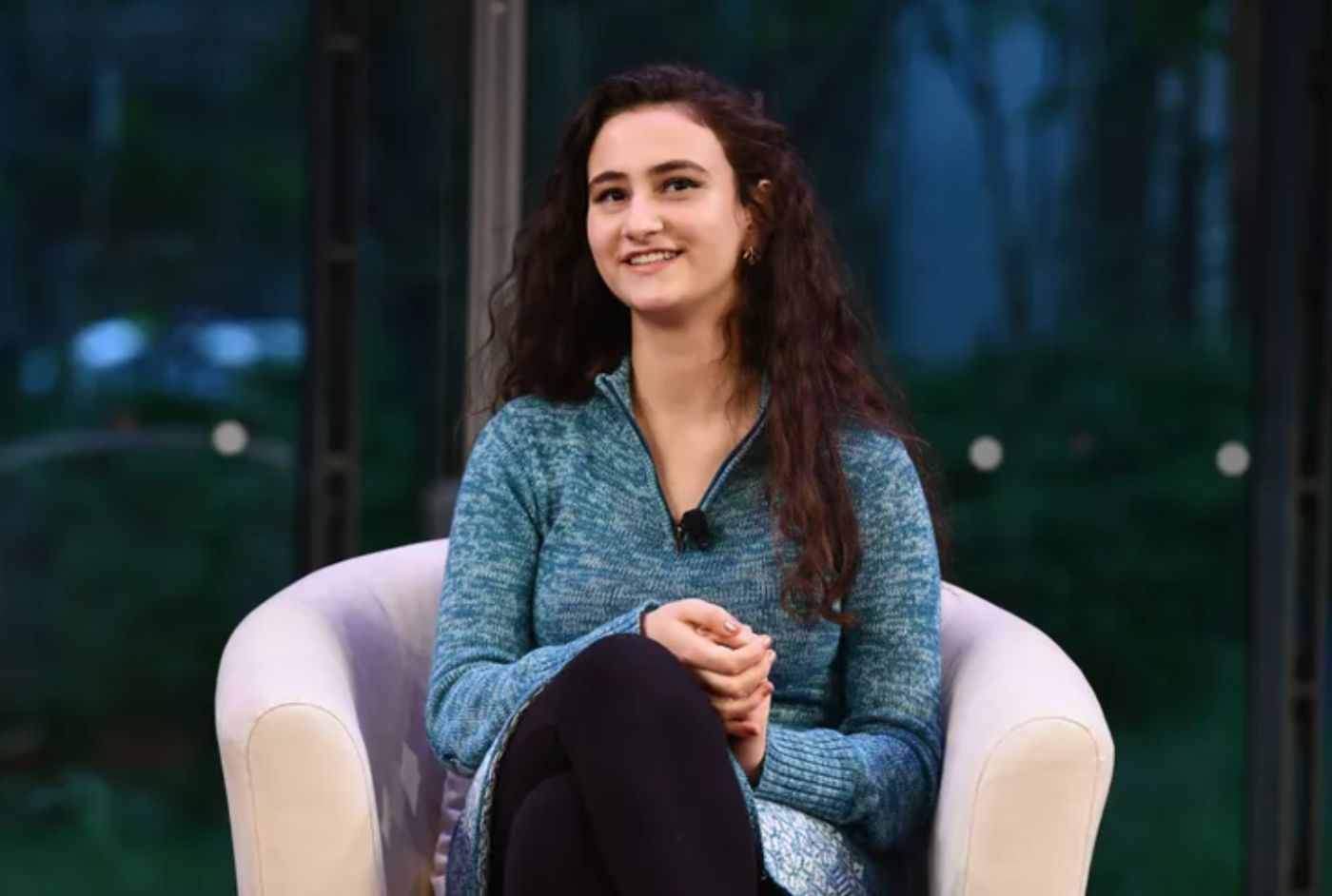What I'm talking about. So I always grew up with that knowledge. And then in terms of like, Seattle impacting my activism, I mean, I was born in California, so I can sing Katy Perry's California Gurls with, like, a sense of superiority. I can like, yes, California, you know, I can be like, I love California, but I, I, I moved from California to Seattle when I was two, and I just went to visit family there. So I grew up in Seattle, and Seattle is really what shaped me and raised me. First of all, the nature of the Pacific Northwest. I, I never felt I'm very much culturally, ethnically, and like, communally Jewish, but I'm not religiously Jewish. My religion, I say, is it's my little spirituality with nature. Like I sort of have my relationship with it the it's nothing dogmatic or a system of beliefs. It's just more of this inherent connection that I understand and feel with the ocean, with, like, like the Pacific Ocean is my bestie. I don't know how else to put it. Like, you know, like I would talk to the ocean. I'm that kind of tree hugger. I have unironically hugged trees in my life, you know, like that's sort of. Maybe I'm a hippie. I mean, I'll own it. Hey, you know, there are worse things to be in life. That's awesome, I love it, I love it, but sort of like that nature was so accessible to me, living, growing up in Seattle. And I'm so grateful for that. Especially the part of Seattle that I grew up in was pretty close to the ocean, so the ocean was very accessible to me. Also, I grew up learning about indigenous cultures very early. My preschool teacher was an indigenous woman who was also my neighbor, and she would talk to us. She would read us stories that were like indigenous fables. And she would, so ever since, like, my little preschool brain always knew that there were people here before and colonization happened. And so I never really grew up with the American myth of like, yay, we were perfect. I mean, I did buy into some things. I had my little centrist era, not really. I just didn't know much, you know, when I was like 13, I mean, I was a child, but, you know, when they teach you in school about America, is so great. But I also, from an early age, learned about how we would take these trips to Tillicum Village in preschool, which is an island off of Seattle that is like an indigenous cultural preserve where they do traditional dances of the local people and like food. And um, there's also like hiking trails. So you can also see the nature and stuff like that. So I remember going to Tillicum Village and watching these dances and learning about what things were like in Seattle before, and seeing the totem poles everywhere, like because the West Coast was colonized last in terms of like, I mean, there was always there was colonization happening for a long time, but I guess there's more of a the prominence of the you can feel it when you go to Seattle, but there were people here before, you know what I mean? Like, it wasn't always like this. And so ever since I was really little, I had this sense of like, something's wrong. And it wasn't like, who were the like, how, you know what I mean? And especially with my teacher, my preschool teacher. And then, when I got involved in community organizing, a lot of the people who were on the front lines in local Seattle environmental justice, community organizing were indigenous folks. And so I met the I think he's the great-grandson of Chief Seattle. And I worked with different communities and listened to, you know, we would all be at climate events together. And so folks from like the Puyallup Tribe and other places would be, and Duwamish would be talking about their experiences and their battles. And so it just became something so internalized, like I just grew up around. There was a totem pole ceremony that I went to with my family when I was younger. And so I, I learned and, and have always sort of known that indigenous justice is climate justice, that there that the fake narrative that is taught about America the greatest whatever freedom is bullshit and that we need to question things and that, we need to stand with indigenous peoples in their fight to protect their land and their sovereignty. Like, these have always been things that I have agreed with and sort of grown up around because of my upbringing in Seattle and then getting involved with the local movement in Seattle, and also like my teacher and, in synagogue and, the community around the synagogue that I went to And also my nerdy Jewish dad and my nerdy Jewish grandpa, who also gave me a lot of wisdom but also passed on their terrible eyesight. So I wear glasses and contacts. Thanks a lot, Dad and Grandpa. But you know what? It's fine.
